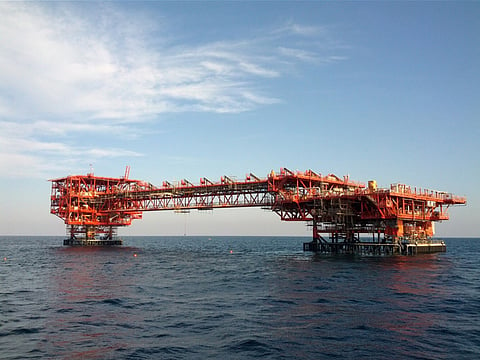Comment: An investment for a strong future
Scott Shuey, Gulf News Business Editor, looks at the impact of the Dh486-billion ADNOC investment in the local economy, the world's energy market

COMMENT
Dubai: The UAE’s decision to announce massive investments in oil and gas on Sunday is going to have a tremendous impact on its economy.
It will allow ADNOC to attract more strategic partners in the fields of exploration, production, gas, refineries and petrochemical manufacturing; it will create jobs and boost the overall economy.
To state the obvious, investing Dh486 billion in the economy is never a bad thing.
Boosting global oil market
But the benefits of the investment will go beyond the UAE’s borders — by giving a show of support to the global oil markets at a time when it needs it most.
On Monday, US sanctions on Iran go into effect, effectively removing 3.8 million barrels a day from the global oil markets.
While a number of OPEC countries have pledged to ramp up oil production to replace it, there is concern globally that the oil industry does not have the capacity to meet demand.
Investment in oil and gas production dropped following the oil price crash of 2014 and has only recently begun to recover. This drop in investment has resulted in diminished capacity, which means that any spike in global demand could result in a corresponding price spike.
If prices increase too far, it could impact global growth.
Considering the current state of the global economy, which is already dealing with the rise of protectionism, an energy shortage is the last thing the world needs.
This brings us back to the UAE’s decision to invest Dh486 billion in to expanding ADNOC’s capacities.
It signals to the world that investment in product is coming back in force.
Sunday’s announcement will not mitigate the short-term effects of the Iranian sanctions, but it will go far in showing markets that energy will continue to be available as the world grows.
Increased capacity
The increased capacity from the UAE’s investment will be substantial too.
According to market data, the UAE currently produces about 3 million barrels of oil a day. Its expansion plans will boost its capacity to 4 million barrels per day (bpd) by 2020, and add another 1 million bpd of capacity by 2030.
But the expansion of the UAE’s gas production will also have a significant impact on the country itself.
The UAE currently imports natural gas to fuel its desalination plants and generate electricity, not to mention industrial uses.
This expansion will likely ensure the UAE’s ability to be energy (and water) self-sufficient, a significant step forward for the country. If the UAE succeeds in its goal of becoming a net gas exporter, that’s just extra money in the bank.



